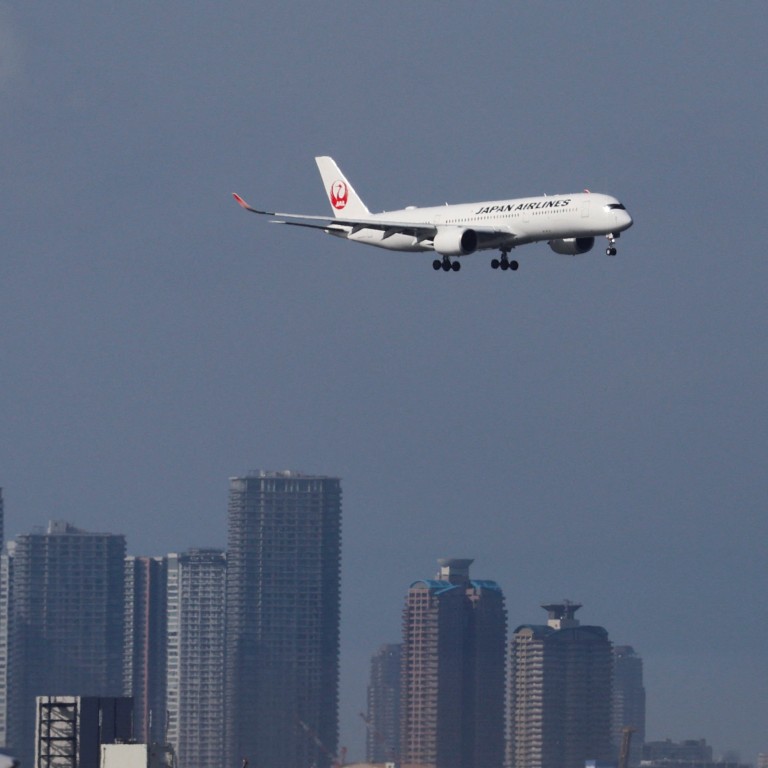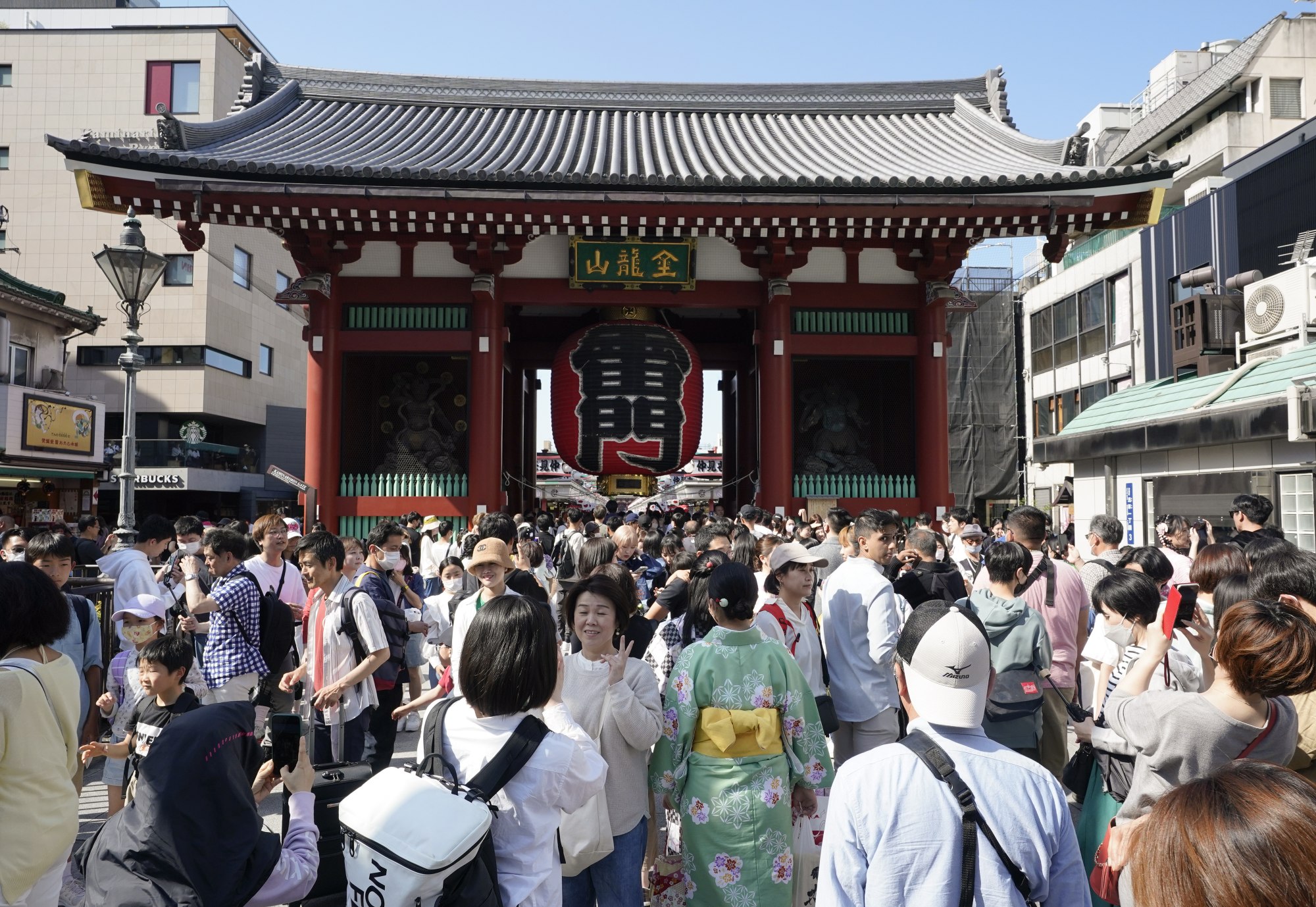
No flying high for Japan’s post-Covid airports, with tourists greeted by lack of staff and queues
- Hundreds of airport workers left the sector when airports shut down in the early stages of the pandemic; even before that, pay and conditions were not the best
- As government sets up a special task force, travel expert says problems were ‘avoidable’ and Japan could have done better by watching ‘case studies’ elsewhere
Hundreds of airport workers left the sector when the nation’s airports were effectively brought to a standstill in the early stages of the global coronavirus pandemic.
According to the transport ministry, 61 major companies providing airport ground handling staff – everything from the engineers who refuel aircraft to the drivers of transfer buses, baggage handlers, cleaners and security staff – could count on around 21,600 employees in December, down 20 per cent on the figure in March 2019.
Pay for some of these positions was already relatively low, particularly at small regional airports, the Asahi newspaper pointed out, and pay and conditions did not improve when flights were grounded.
Japan is ‘rammed’ with visitors – and Chinese tourists aren’t even back yet
The hundreds who left Japan’s airports have not returned now that operations are back on track, meaning that new people need to be taken on and trained, at a time of climbing demand for staff throughout the country’s economy.
The situation is so serious that the transport ministry has set up a panel to address the crisis, with the initial suggestion being that wages are immediately increased to make airport careers more attractive.
An official for Narita Airport Authority, which manages one of the two key gateways to Tokyo, said the company is working hard to bring in additional staff, but denied shortages were having a serious effect on travellers or airport security.
“We are getting more staff, which is important because the government is keen to promote the tourism sector and bring more people to Japan,” said the official, who declined to be named as he was not authorised to speak to the press.
Given the issues the airport experienced during the surge of travellers at that time, the official expressed a degree of concern over the upcoming summer holiday season.
He said there may also be problems associated with the Chinese government lifting its ban on citizens travelling abroad, as millions of Chinese are expected to seek to head overseas after being unable to go abroad for several years.
Some 9.6 million Chinese arrived in Japan in 2019, making up a big proportion of the total of 31 million arrivals over the course of that year.
One analyst believes the current situation was “completely avoidable” and that Japan’s failure to introduce solutions to the problem of overcrowding that was already apparent at some airports before the pandemic may put some travellers off making return trips.
As tourists flock to Japan, locals aren’t going anywhere
“This was foreseeable because Japan has been one of the last major international destinations to open up to tourists, and the authorities should have looked at what was going on in London, Paris, Dubai and elsewhere when those cities reopened in a big way,” said Ashley Harvey, a travel marketing analyst who has worked in Japan’s travel sector for over 15 years.
Japan should have used those cities’ experiences “as case studies … and learned their lessons”, he said. “There would have been problems anyway, of course, but it’s clear the airports and the authorities here were not prepared.”
Harvey believes the down-time brought about by the pandemic should have been used to iron out problems at the nation’s airports, including the large-scale introduction of electronic ‘self-service’ passport gates for arrivals to help reduce waiting times.
While some Japanese airports do have such gates, he said, they are solely for Japanese passport holders, unlike in many other nations.

Baggage-handling systems are also often “not fit for purpose” and fail to meet the demands placed upon them by a sharp increase in arrivals and departures, he said.
“It is this sort of strategic planning that needed to be done when the airports were quiet, but was not done,” he said.
Similarly, if competition from other sectors of the economy makes it difficult to secure workers, airports should have led the way in employing capable foreigners, he argued.

Harvey added that he often advises visitors to arrive at one of the larger regional airports, like Chubu Centrair in central Japan or Fukuoka in the south, before travelling on to their final destination as inconveniences associated with vast numbers of people arriving at better-known places that cannot actually cope are thus greatly reduced.
“Japan’s airport operators, the different ministries with a stake in the tourism sector and the government in general have to start listening to what travellers want and need,” Harvey said.
“It’s no good saying that things are fine now because it’s the off-season and they’ll ‘manage’ when they get really busy at Golden Week or in the summer, because if travellers are not happy with their first taste of Japan at the airport, they will remember that and they will go somewhere else next time.”

